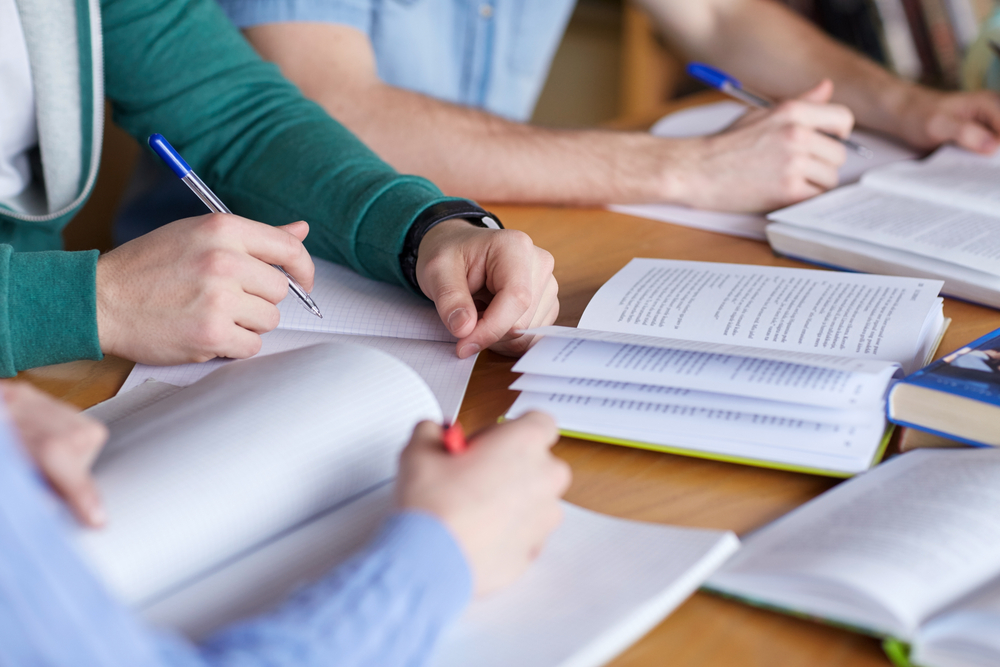Cheating at AUP

As the school year comes to an end and exams start to creep up on us students (putain, I also forgot), I started to think about how this semester has worked, academically-speaking. Personally, I have been stressed to the max, pushed myself to my limits, and, can proudly add, have studied my cul off. When I think about studying, I wonder about how other students get by and deal with the same levels of stress as myself. When we're under stress, we tend to look for short-cuts and, at university, these short-cuts often seem to take the form of cheating. So the question I asked myself was whether cheating is an issue at AUP. To discover what students and staff have to say on this question, I set out to interview four students from different majors and one professor for input on this taboo topic. These interviewees, for obvious reasons, will remain anonymous. But what they told me shook me to my core...
Is Cheating a Real Problem?
Whether the university is Harvard or a community college in Middle-America, cheating happens. Humans are humans and we're not all perfect. Just look at the typical AUP student, I promise, they aren’t as perfect as their Instagram profile. When I asked one student if she has witnessed cheating at AUP, she responded with an affirmative answer. She explained that cheating happens in multiple ways: students use their phones during exams, copy assignment answers minutes before homework is due, or have a friend sign in for a class they are not attending. Another student confided, “Students in some of my classes are constantly cheating. Whether it be on tests, assignments, or just in-class work.” Cheating seems to be alive and well in our small university in the City of Light, so I decided to dig deeper into the shadows and see what else I could reveal about this unfortunate phenomenon.
What Sort of Environment Favors Cheating?
With all the good in my heart, I believed that cheating cannot occur in every setting. I turned to my interviewees for answers about what types of classrooms people cheat in, and why they believe it happens in these settings. “It has never happened in a class where I can approach the professors,” one student revealed. “I feel like there is a large gap here between professors who want to change students' lives and educate them for the better, and then another group of professors who just ended up here. This shows in the style of teaching and how much discipline they bring to the class,” she continued. It seems as if the environment of the classroom either encourages students to perform at their best, or the opposite, and enables students to do what they have to to get the best grade. This seems to depend greatly on the professors' classroom approach. Where they are engaged with their students, encouraging and helpful, it seems that cheating isn’t apparent, but, on the other hand, in classrooms where professors just seem to be there for the paycheck, it seems that the environment encourages students to seek grades in unethical ways.
Image Credit: Shutterstock/Syda Productions
Do Students and Staff Report Cheating?
Reporting a fellow student in terms of cheating to the professor could potentially look bad, so I wondered whether students actually do report these injustices. One student told me she didn’t: “I don’t report it because I think, karmically, it will come back to these people.“ But does karma feel like it is always working when the cheater gets an A on their exam and you got a B? I would think not. I asked a professor on their views on cheating, and they revealed that they appreciate students who report these academic injustices. “When students report a fellow classmate cheating, I am very proud of that student. It takes courage and integrity to stand up against a peer. I highly respect the students that have come to me when they see cheating and I haven’t.”
How Are Students Cheating?
As cheating is a problem, students have many ways they go about it. The most popular form of cheating seems to occur on mobile phones. It should be encouraged that professors take the phones to the front of the room as well as bags and other accessories. This takes away the risk of students using eyeglass cases, backs of purses, and other opportunities to sneak in some cheating methods. When students have access to their personal belongings, it is more likely they will utilize them to their advantage. Another issue in the exam sessions are the "cheat sheets." Professors occasionally allow students to use one to three sheets of A4 paper, and some students tend to take advantage of this. By stapling multiple papers together, adding extra sheets into their stack, or sharing these papers with their friend seated next to them are all examples of how students seem to take advantage of inattentive professors. Professors should be looking around the room as much as possible, walking around, and generally being attentive to the actions students are taking in the room. One student states "that professors are not to blame for the cheating, but they should be firm against it."








